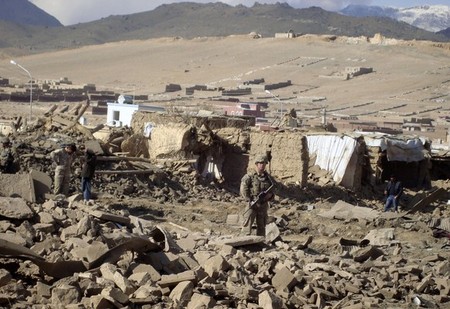How many troops in Afghanistan is the wrong question.

According to the Wall Street Journal, the Obama administration is negotiating to leave 10,000 or more U.S. troops in Afghanistan after 2014 - the date which, you'll recall, Vice President Biden adamantly insisted there would no U.S. troops in the country. Imagine that.
These 10,000, according to the Journal, would be on hand for counterterrorism missions and to continue training Afghan security forces.
Is this enough? Too many? Kimberly and Frederick Kagan argue that the U.S. would need to sustain three times as many troops to safely conduct both missions.
I'm not qualified to judge which precise number is logistically or practically wise, but this is almost besides the point. The central question is: is it worth it to have 10,000 (or 30,000 troops) in Afghanistan to battle what is left of al-Qaeda? Are the remnants of the organization that potent? Can the threat from al-Qaeda in Pakistan's tribal region be mitigated another way? And finally, how likely is it that this troop commitment will yoke the U.S. to the fate of the current Afghan government and lead to calls for more troops down the road if the Taliban insurgency grows more lethal (the Kagans' analysis does not even grapple with such a possibility, which should raise red flags).
It's striking that we can talk blithely about such a long-term commitment without any debate or argument about al-Qaeda's potency in Pakistan's tribal region. I'm not averse to leaving forces behind in Afghanistan for such a purpose, but it would be nice if the administration presented some evidence or made some kind of argument that they're vitally necessary.
(AP Photo)











